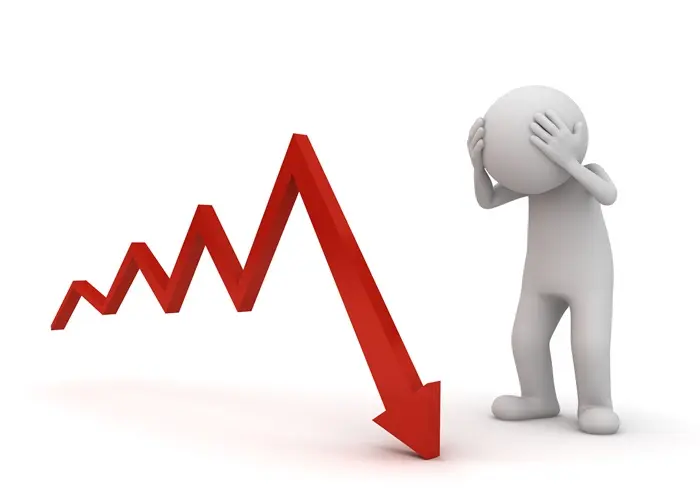Asian stocks experienced a decline despite China’s economic growth meeting its annual target. The mixed reaction to the Chinese data dampened broader optimism in the markets, especially after a global risk rally earlier in the week that had been fueled by traders adjusting their expectations for Federal Reserve interest rate cuts.
China’s Economic Expansion and Mixed Market Reaction
China’s GDP growth for October-December rose by 5.4%, exceeding the government’s target of 5% and marking the fastest pace in six quarters. While this improvement suggests that China’s stimulus measures for 2024 are having a positive impact, the data did not provide the significant boost expected by investors. The CSI 300 index in China gained, but other Asian markets, including those in South Korea and Japan, fell.
Charu Chanana, Chief Investment Strategist at Saxo Markets, noted that while the Chinese economic data was reassuring, it does not rule out structural headwinds and ongoing risks from tariffs. The future performance of Chinese assets will depend on how these challenges are managed, with potential policy responses being key drivers for long-term market returns.
Uncertainty in Chinese Assets
The uncertainty surrounding Chinese assets was heightened by reports that Zhu Jiusheng, CEO of China Vanke Co., was taken away by police. Local government intervention in the company, coupled with potential restructuring, added to investor concerns. These developments contributed to the volatile environment surrounding Chinese stocks.
Focus on Asian Chip Stocks and Nintendo’s Decline
Asian chip stocks, particularly those of Taiwan Semiconductor Manufacturing Co. (TSMC), were in focus. TSMC projected quarterly sales and capital expenditure exceeding analysts’ estimates, fueling optimism around resilient spending on AI hardware. However, TSMC’s Taiwanese shares fluctuated despite a 3.9% rise in its US-traded stocks.
Nintendo Co. also saw a significant drop in shares after the unveiling of its next-generation Switch 2 console, which was perceived to resemble the current model too closely. This led to a 3-month low in its stock price.
Additionally, Rio Tinto Group slipped in Australia following reports of preliminary talks about merging with Glencore Plc.
Currency Markets and Fed Speculation
In the currency markets, the US dollar held steady, while the Japanese yen gained more than 1% against the dollar this week. Speculation about the Bank of Japan raising its key rate next week grew as 74% of economists forecast a rate hike, up from 52% in the previous poll.
US Treasuries and Federal Reserve Outlook
US Treasuries saw little movement after a rise on Thursday. Federal Reserve Governor Christopher Waller hinted at the possibility of rate cuts in the first half of 2025 if inflation data continues to be favorable. Swap trading suggests some expectation of easing this year, though the pace remains uncertain.
Damian McIntyre, a portfolio manager at Federated Hermes, commented that the December US inflation print had helped ease market fears over the Federal Reserve’s future actions, with expectations that inflation would continue to fall in early 2025.
Wall Street’s Strong Investment Bank Earnings
Market volatility in the latter half of 2024 helped bolster earnings at investment banks. Morgan Stanley’s fourth-quarter profit more than doubled, driven by increased trading revenue. Bank of America Corp also exceeded profit expectations, benefitting from the highest investment banking fees in three years.
Mixed US Economic Data
As the US corporate earnings season begins, Thursday’s US economic data presented a mixed picture. Homebuilders grew more cautious about future sales, while retail sales figures indicated that consumer spending held up well during the holiday season.
David Lefkowitz at UBS Global Wealth Management commented that the upcoming earnings reports would allow investors to shift focus from macroeconomic concerns to individual company performance, with a positive outlook on US equities.
Commodities: Oil and Gold
In the commodities markets, oil prices edged higher after a 1.7% drop on Thursday. Crude prices are on track to rise for a fourth consecutive week, though mixed signals from President-elect Donald Trump regarding sanctions on Russian crude added uncertainty to the market.
Gold prices are set to mark a third consecutive week of gains as investors seek safer assets amid broader market volatility.
Conclusion
Asian stocks fell, with China’s economic data offering a modest boost that failed to inspire significant market optimism. While the growth data signals the effectiveness of Beijing’s stimulus measures, ongoing structural challenges, uncertainties in Chinese corporate governance, and competition in the chip and tech sectors remain key factors influencing market sentiment. Investors are keeping an eye on potential rate hikes in Japan, as well as further developments in US economic data and earnings season. The mixed signals from both global markets and commodities point to a cautious outlook for the near term.
Related topics:



























